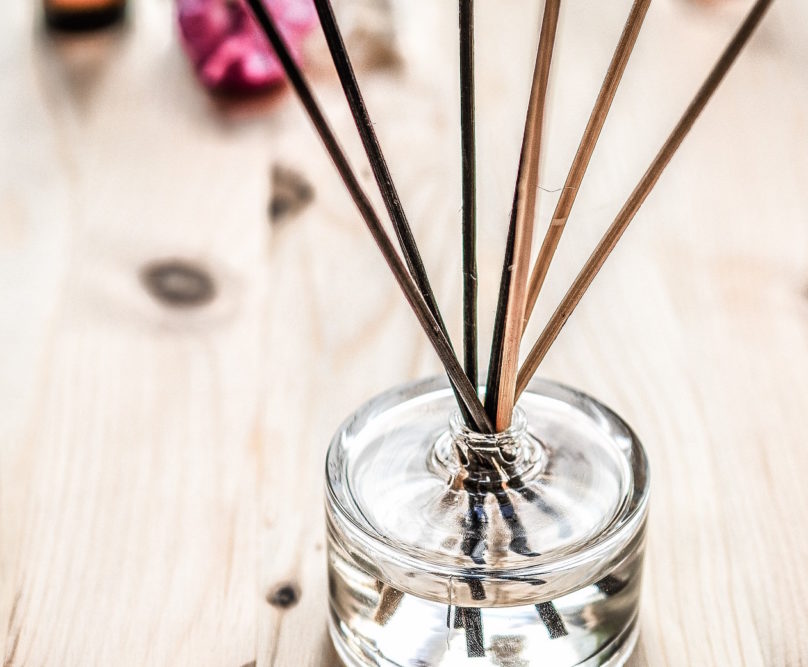As stress has become the norm, we are often searching for new alternate ways to relieve it. From aromatherapy to sex, get to know the science behind how they may help.
BY: JANICE CHOW, MS, RD, LDN
Stress is around us. In today’s world, it seems harder than ever to block out stress triggers because of technology advances and non-stop hustling.
However, it’s important to keep in mind that feeling stressed is a natural, physiological reaction that keeps you focused and productive. Your brain sends signals to trigger the body’s “fight-or-flight” system when you feel alarmed. Once the trigger is removed, your body will return to a relaxed state.
The issue lies within chronic exposure to stress, which can lead to serious health problems such as heart disease, diabetes and mental disorders. It can also affect your personal relationships and quality of life. Learning how to relieve stress will reset your body’s response to stress triggers. Many turn to common stress relief methods such as exercise, sleep, and meditation, but more and more people are seeking holistic practices and alternative methods to relieve stress – let’s take a look at what the science says about them!
Aromatherapy
Aromatherapy is using a plant’s aroma-producing oil (essential oils) to improve physiological and psychological well-being. Fragrances in the oils stimulate nerves in the nose, which are directly connected to parts of the brain that process emotion and associative learning (amygdala and hippocampus). This reaction can lead to hormonal changes that are calming or stimulating to the body.
In several review studies, aromatherapy has shown transient effectiveness to relieve stress and anxiety symptoms, but not necessarily in the long term. One review pointed out caveats in the methodology used in previous studies, and did not support aromatherapy as a valid treatment for any condition. However, aromatherapy can be used to relieve short-term stress and anxiety, and pleasant odors can induce positive emotions. So it doesn’t hurt to surround yourself with relaxing scents, especially if it will make you feel less stressed!
Massage therapy
Massage therapy is performed by therapists who manipulate with your muscles and soft tissues to make you feel better. Its usage dates back thousands of years in ancient civilizations such as China, India and Egypt. Massage therapy often involves different types of techniques to promote certain effects, such as pressing trigger points, tapping, or kneading areas with muscle tension.
Although there’s no indication that massage is effective in reducing anxiety symptoms, several studies indicate massage may reduce depression and help older-aged adults relax, Nevertheless, massage still helps improve overall quality of life. Save up for a massage session as a special treat for yourself!
Art therapy
Some people find it therapeutic to watch watercolor videos on Instagram. According to American Art Therapy Association, art therapy uses the artwork-creating process and outcome “to improve cognitive and sensory-motor functions, foster self-esteem and self-awareness, cultivate emotional resilience, promote insight, enhance social skills, reduce and resolve conflicts and distress, and advance societal and ecological change”.
One small study in 2016 found that art making may lower the stress hormone cortisol in healthy adults. In another review, the relationship of health outcomes with different methods of creative art outlets, including expressive writing, visual art, and music therapy, was explored. There is early evidence that suggests art therapy may help reduce stress indicators, improve vital signs, and increase positive emotions. Time to create some art!
Music therapy
Music therapy addresses physical, emotional, cognitive, and social needs of individuals with music. Music can calm neural activity in the brain and help restore effective functioning in the immune system through the actions of the amygdala and hypothalamus.
The National Sleep Foundation recommends playing music with a slow rhythm of 60-80 BPM (beats per minute) to help to relax your body. Other studies have indicated that music can reduce anxiety and clinical indicators of stress (think lower heart rate because you are really calm). Researches on music therapy also found it beneficial for the following population: elderly, people that have chronic cancer pain and people going through traumatic events. When you are stressed, consider checking out this YouTube playlist, which contains 60-80 BPM songs for relaxation.
Intimacy/Sex
Most of us know that getting it on under the sheets is enjoyable. The common belief is that sex is a pleasurable activity, and enjoying pleasurable activities will reduce stress. And that’s actually pretty true!
The body releases oxytocin during sex, which lowers cortisol and triggers a wide range of feelings including happiness and compassion. In one small study, sexual interaction and physical affection improved mood and reduced stress in women. A larger review article pointed out that engaging in sexual activity has the same stress-reducing effect as exercising, but it depends on the quality of the experience – only satisfying sex will reduce stress!
Remember, there is no one-size-fits-all way to relieve stress. Doing things you enjoy will relieve stress – whether through common methods like exercising or meditating, or the holistic ways that were just mentioned. It’s important to experiment and find out what works best for you!
Janice Chow, MS, RD, LDN is a Chicago-based registered dietitian, food enthusiast, and food photographer with a passion for promoting mind-body wellness to people of all different ethnic and cultural backgrounds. With a focus on helping people suffering from emotional eating and stress-related chronic diseases, Janice empowers individuals to achieve a mindful life. Make a visit to The Mindful Chow.

